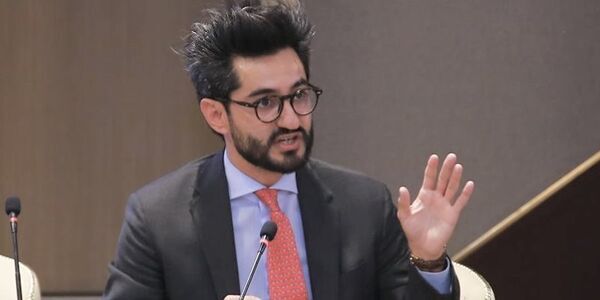Everyday Political Economy of Plural Policing
An interdisciplinary, international research network of scholars working on or interested in advancing plural policing research.

- Faculty of Social Sciences
- School of Law
- Research and expertise
- Centre for Criminal Justice Studies
- Everyday Political Economy of Plural Policing
School of Law - Everyday Political Economy of Plural Policing
Our mission
We are an interdisciplinary, international research network of scholars working on or interested in advancing plural policing research. The aspiration of this network is to significantly advance knowledge on the ‘Everyday Political Economy of Plural Policing’. We believe that collaboration and knowledge exchange are fundamental in achieving this goal. To facilitate this our network will provide a platform by which members can connect globally, engage in collaborative research opportunities, and organise conferences whilst sharing and promoting their work.
We welcome anyone interested in this research agenda to join our network by emailing us on: epepp@leeds.ac.uk. You can also follow us on Twitter at: @EpeppNet
Addressing the gap
Policing is no longer the exclusive domain of the ‘public police’, but is rather carried out by a wide range of public, private and voluntary actors. Over the past three or so decades, our comparative understanding of ‘plural policing’ has moved forward considerably. An ever growing number of scholars have contributed towards the process of mapping out both the multiplicity of actors tasked with delivering policing functions on the ground and the array of regulatory structures responsible for steering these functions from above.
Much less is known about what happens when these policing actors and regulatory structures interact with one another on a daily basis. To address this gap we are pushing forward a research agenda on ‘Everyday Political Economy of Plural Policing’.
Three key questions
- How do public, private and voluntary policing actors on the ground interpret and negotiate their way through the diversity of regulatory structures they encounter on an everyday level?
- What kinds of social, political and economic orders does this process bring into effect?
- How does this structure-agency dynamic play out within and across different parts of the globe?
In seeking out answers to these questions, we are interested not only in the formal characteristics of policing and regulatory institutions, but also about the mediating role of emotions, identity, culture and other less formal dimensions.
Events
News

Dr Leopoldo Parada featured in Bloomberg Tax article on the tax treatment of foreign investment funds in Portugal
Dr Leopoldo Parada's opinion has been featured, together with other experts,…
Tuesday 18 January 2022
More on Dr Leopoldo Parada featured in Bloomberg Tax article on the tax treatment of foreign investment funds in Portugal
Dr Leopoldo Parada's opinion on EU digital levy plans featured in Law360
Dr Leopoldo Parada's opinion was extensively featured on the US specialised…
Wednesday 17 November 2021
More on Dr Leopoldo Parada's opinion on EU digital levy plans featured in Law360
Dr Leopoldo Parada interviewed on the concept of full taxation
Dr Leopoldo Parada has been featured in Faculti.net regarding his recently…
Thursday 21 October 2021
More on Dr Leopoldo Parada interviewed on the concept of full taxation
Dr Leopoldo Parada's article cited twice in Advocate General's opinion
As members of the Court of Justice of the European Union, Advocates General…
Thursday 14 October 2021
More on Dr Leopoldo Parada's article cited twice in Advocate General's opinion


